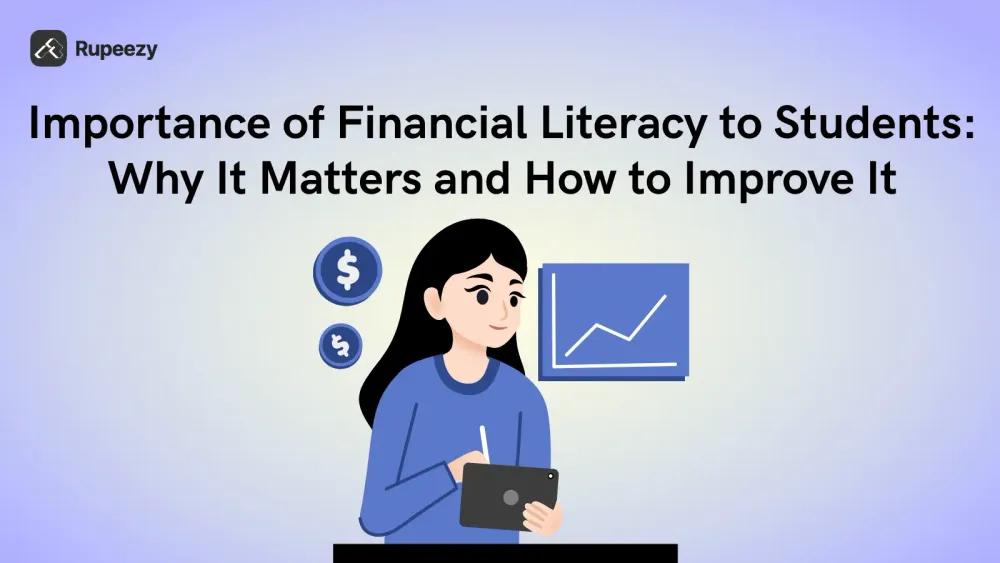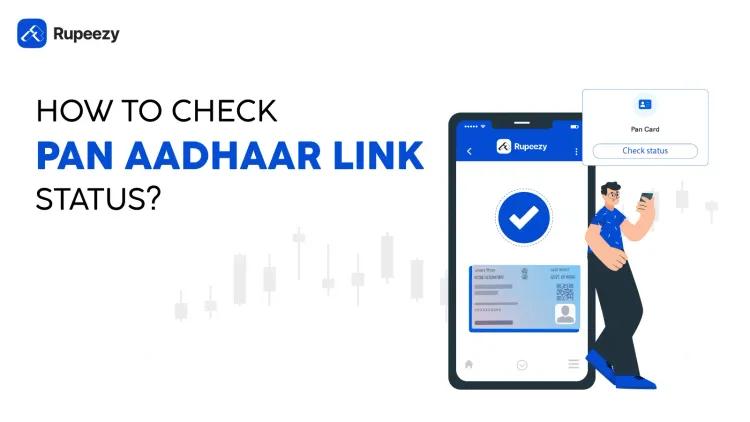Importance of Financial Literacy to Students: Why It Matters and How to Improve It


00:00 / 00:00
“Money doesn’t grow on trees, but grows on intelligent minds”. - Matshona Dhliwayo.
Isn’t this true? Well, if you actually analyze this deeply, you will find that knowing how to use money in the right manner is what everyone needs to know. It includes not just savings but also investing, borrowing, spending, and even earning.
In fact, financial literacy is as important as academics for students, and there is no second thought about the same. It not only shapes how they think but also guides them to build a better future. But how can you explain the importance of financial literacy to students?
If you are also wondering about this, read on. Get all the answers you need in the guide here.
Why Financial Literacy Is Important for Students
Do you know there are various types of financial planning? Well, this is just a part. You need to know about investments and spending as well. This is possible when you learn about finance and various aspects of the same. Some of the reasons include:
1. Builds Smart Money Habits
When students learn about money management, they can plan better. They can manage their savings and spending as well. This allows them to make better choices, which can be really helpful in the future.
2. Encourages Savings Mindset
Knowing the importance of saving allows students to set small goals like saving for books, gadgets, or emergencies. Over time, these small habits turn into a strong foundation for financial security.
3. Helps Avoid Debt Traps
Loans and credit cards are definitely useful. But failing to use them properly is wrong. This can be expensive for you. But when you know how to use them right, this will avoid any kind of adverse situations.
4. Prepares for Real-Life Situations
There are many situations in life where you would need to manage the funds. As you go out to study, you would need to manage the funds for rent, education, and so on. This helps you to learn about how to make the right financial choices.
5. Promotes Confidence and Independence
Students who know how to manage funds can plan better. They not only feel confident but also find it easier to make investment plans. This helps you to have a stronger start as well, which is very important.
How to Improve Financial Literacy of Students
Improving the financial literacy of students should start at a young age. When they know the money management skills early, they can plan better. In fact, they can create their wealth sooner than the rest. This allows them to stay ahead in finances as compared to the rest. The skills can be improved by:
1. Include Financial Education in Curriculum
Schools and colleges should include basic money lessons in their education. It can be about savings, budgeting, or even selecting investment plans. Also, planning simple activities that revolve around planning and investing can be helpful.
2. Encourage Real-Life Learning
Let students handle small budgets for projects or activities. Managing real expenses gives them hands-on experience in balancing limited funds, comparing costs, and making practical financial decisions.
3. Use Games and Digital Tools
Interactive games, financial apps, and budgeting challenges can be very helpful. These can make learning fun and interactive. Also, it can help the students to have some practical experience, which is important as well.
4. Involve Parents and Mentors
Kids learn what they see. This is why parents play an important role in teaching. They can act as an example. They can help them by sharing their plans or educating them on their investments. Good or bad, each can be helpful.
5. Promote Early Investment Awareness
Teaching students about the basics of mutual funds, SIPs, or fixed deposits helps them realise the power of early investing. Even small investments can grow into large savings over time.
6. Organise Financial Literacy Workshops
Institutions can host guest sessions or webinars where financial experts share real-life advice. These interactive sessions help bridge the gap between theory and practice.
When you follow these simple steps, you educate students easily. Be it about mutual funds or fixed deposits, they can learn anything easily.
How Rupeezy Can Help Students Become Financially Literate
Rupeezy is a simple platform that helps you start trading and investing by opening a demat account. Remember, there are age restrictions, so if you do not fall in the category, you won't be able to open an account.
So, here is how students can use the platform:
1. Easy-to-Use Investment Platform
It is a beginner-friendly platform. This means if you are new to trading or investing, you can start with this platform easily. You can get all the support and easily learn about investing.
2. Educational Blogs and Guides
There are blogs and guides on the platform that you can use. These include all the information that you need to learn about investment options and loans.
3. Free Tools and Calculators
Rupeezy provides tools like SIP calculators, goal planners, and return estimators. Students can use them to plan investments and see how their money can grow over time.
4. Real-World Learning Experience
When they attain the age, allow them to manage their investments. Keep it small but ensure that they know what they are doing, which helps real-world experience.
5. Expert Guidance
This ensures you avoid costly mistakes. But also, you can learn various important aspects.
Financial literacy becomes truly effective when theory meets practice. So, why not plan your journey today!
Conclusion
Financial literacy is one of the most valuable skills a student can learn. This is a skill that is not just useful for today but also important for building a fruitful future. It can help students to avoid debts and lead a smoother life in future.
But all this is possible when they learn and practice the skills. This is where you need access to platforms where they can actually manage money. Start with a savings account. Once they are adult, let them plan their investments. Keep a check, and you can see how well they are doing.
Start your learning and investing journey today with Rupeezy.
FAQs
Why is financial literacy important for students?
It helps students to know the value of money. They can know when and how much to invest and save. This can avoid debts.
What are some examples of financial literacy topics for students?
Some of the key financial topics to learn are about banks, savings, investments, loans, and credit cards.
How can schools improve financial literacy among students?
By including financial education in the curriculum and offering workshops, games, and real-life money management exercises.
Can students start investing while studying?
Yes. Students can open a student savings account and can invest in SIP under the guidance of parents or guardians. This can be quite helpful.
How does Rupeezy help improve financial literacy for students?
Rupeezy provides easy tools, blogs, and expert guidance that help students learn, plan, and invest confidently from an early age.
The content on this blog is for educational purposes only and should not be considered investment advice. While we strive for accuracy, some information may contain errors or delays in updates.
Mentions of stocks or investment products are solely for informational purposes and do not constitute recommendations. Investors should conduct their own research before making any decisions.
Investing in financial markets are subject to market risks, and past performance does not guarantee future results. It is advisable to consult a qualified financial professional, review official documents, and verify information independently before making investment decisions.

All Category










